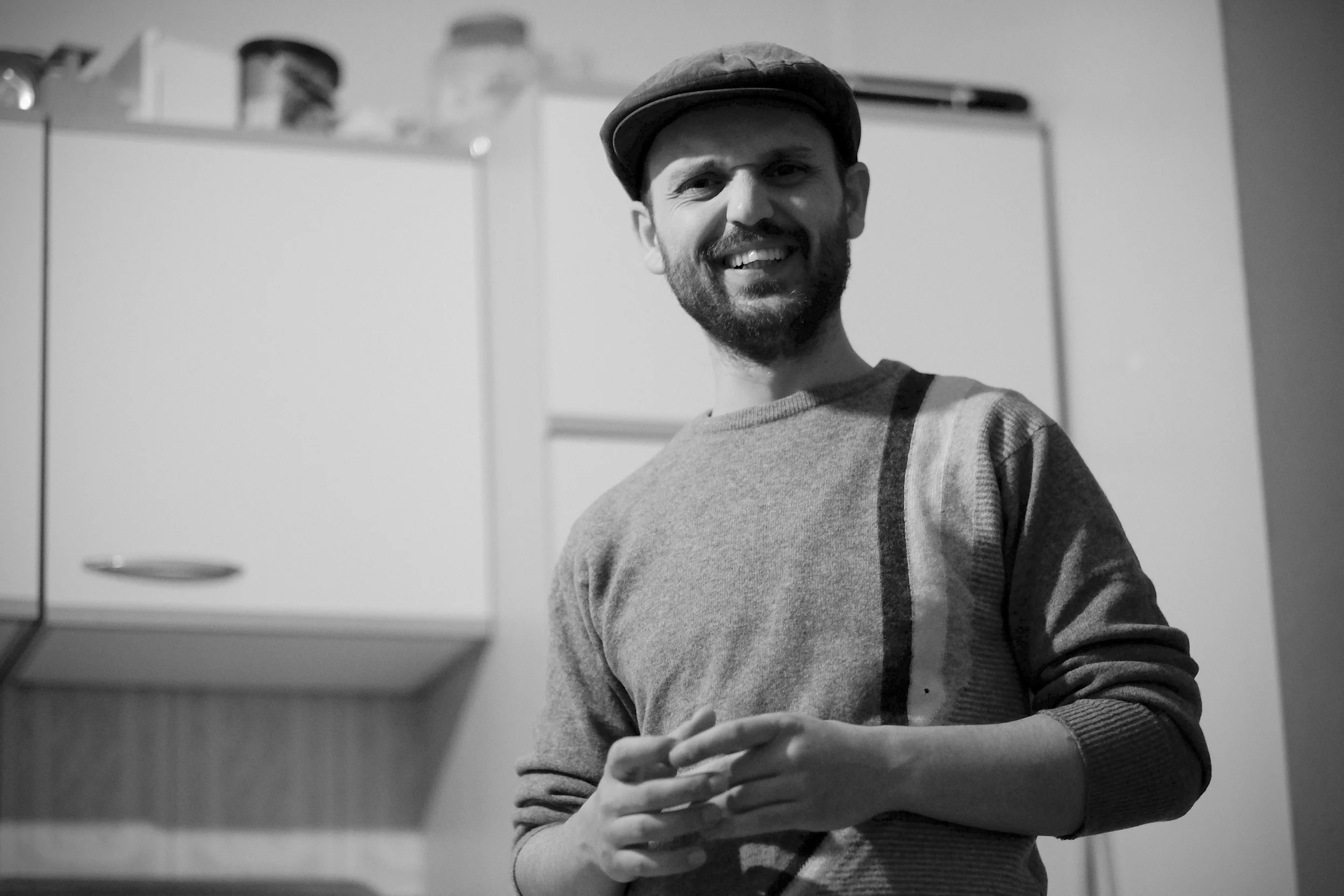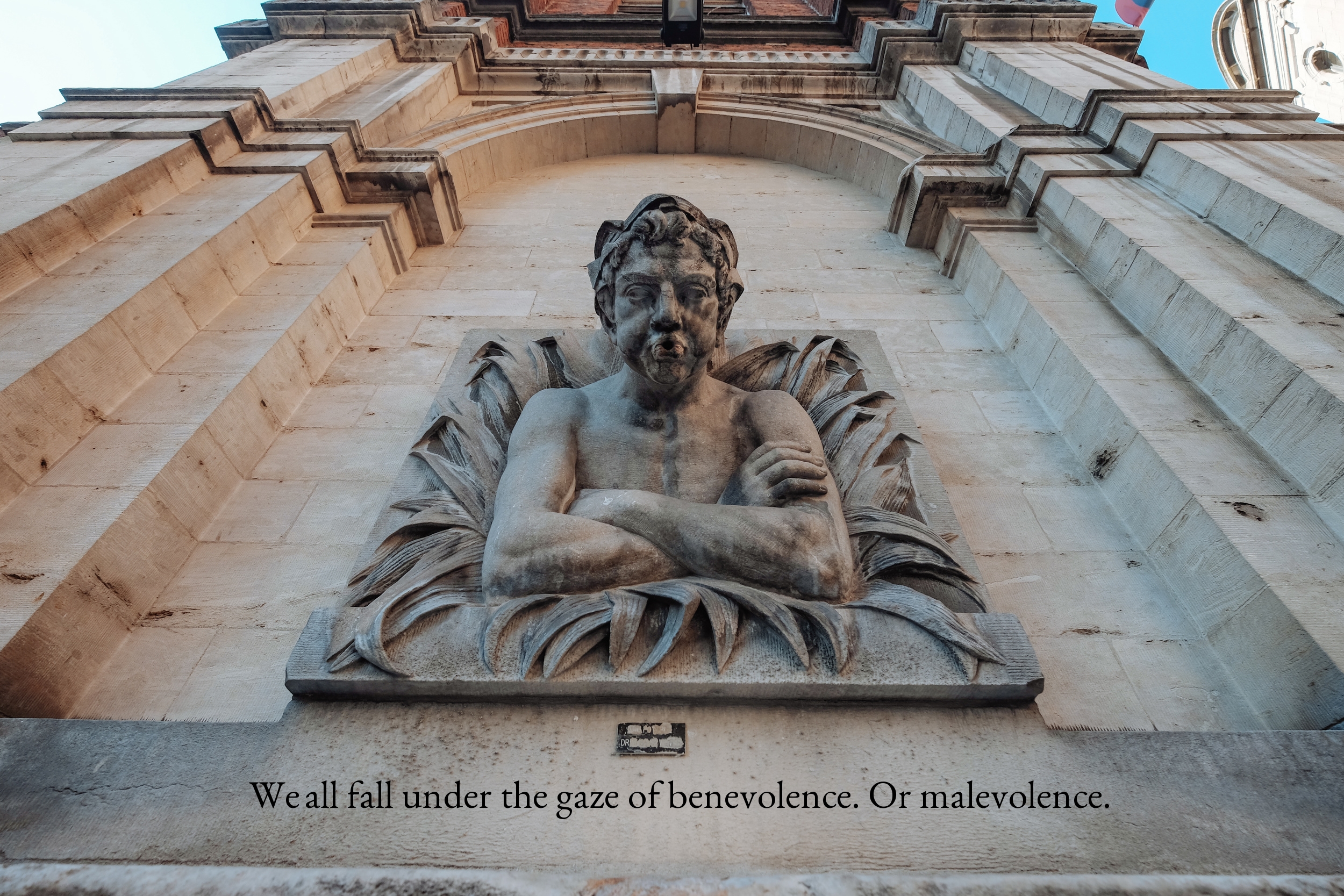Oreste Papadopol: No money, no worry
Breakfast Tales from Brussels
29 October 2015
Every once in a while, life connects us with somebody unique, someone so far out of the realm of your own experience that you marvel at just how differently people can lead their lives.
In Brussels, my airbnb host, Oreste Papadopol, was such a man. Most of the time, for airbnb apartments, you’ll get a key on the table and instructions via e-mail. I’ve rarely, if ever, seen my hosts. But, Oreste was there to welcome me and show me how everything works. He even made me a cup of Turkish coffee. The apartment has just one bedroom and a living room/kitchen area. Guests occupy the bedroom for a princely 10 euros a night. Rather unconventionally, Oreste stays in the apartment, sleeping on a mattress in the living room.
His airbnb rate is absolutely unheard of. In fact, the closest match I found was 40 euros a night for a similar space. And that was my first inkling that this was no ordinary man. He explained that he wanted to meet new people, that this was a way of travelling without moving and that price should not be a factor for people. But he didn’t always live this way. In fact, he has had a series of “adventures”, as he calls it.
And that made me pause.
How much of what we experience can be termed as adventure? So much of modern travel is predetermined, composed and fine-tuned. And even if we don’t plan from day to day, we still know when we fly in and out, and the places we roughly want to visit.
Rarely do we let life happen to us; rather, we make things happen and then call it “life”.
As I spoke more with Oreste, he regaled me with tales of his travels. So, here’s one of his adventures, in which he set out on a pilgrimage in search of his faith and witnessed three miracles firsthand.
THE ROAD TO SANTIAGO DE COMPOSTELLA
In 2007, Oreste left his poorly paid job as a shopkeeper in Benidorm, Spain. Inspired by a friend who had made the same journey, he planned to walk to Saint James’ Cathedral in Santiago de Compostella in the province of Galicia, passing through Pamplona, Logrono and Burgos.
Burgos was about half of the way there but I ran out of money in Burgos. And when I say, “ran out of money’”, it really means zero cents. I was very tired that morning after walking very far to Burgos. It was a tough decision to make but I could hardly walk and with zero money I decided to go back home to Altea, south of Valencia, Spain.
So I went to a public phone and I gave the last coin I had in my pocket to ask a companion of mine from Valencia to send me money for the bus but he told me instead, “Are you giving up? Are you not ashamed to tell everyone here that you have set out for Compostella and now you have come back without reaching the goal? Don’t be a quitter and come back here victorious like a champion!”
Upon hearing these words, he raised his head with determination, and said, “You are right, Carles, that‘s the spirit, I’m not a quitter” and left Burgos in total abandonment of himself.
FINDING ANGELS OF LOOSE CHANGE
If you chase after the world, the world runs from you. But if you run from the world, the world comes to you. - Shaykh Nazeem Haqqani
“Keep walking” was the only thing in his mind. And somehow, during the whole trip, he always had enough to eat, without ever asking from anyone.
And so it was I found myself in the middle of nowhere, on a dusty road. It was approaching noon and I only had a bottle of water in my bag. I saw on the horizon a village maybe six miles away. I was glad to see it but I had no money so I expected nothing. I told myself, “What I have is water so I’ll drink what I have right now.”
I dropped the walking stick on the ground, stopped walking and drank some water. When I bent to grab the walking stick off the ground, I saw half of a two euro coin right on the top of the stick. The coin was half in the ground and half outside. Literally, the stick was pointing towards the coin and bending. It was so hard NOT to see the coin.
So I went to the village and bought ingredients to make a sandwich!
On another day, he took a nap by a secluded fountain away from the main road. No one was around when he fell asleep, lulled by the stupor of the afternoon sun. When he woke, he found 20 euros in his bag and no one in sight. That made him several sandwiches.
After Oreste left Santiago de Compostella, the goal was to continue, with no money, to Finisterre. Finisterre in Latin means “the end of the earth”. It is the westernmost point in Spain. The landscape of Galicia has a lot of rain, forests, ghostly abandoned villages, a very low density of population and houses in ruin on the edge of the road.
There is a statue in the town of Corcubion. It is of a man looking towards the ocean with his luggage in one hand and the other hand covering his eyes. His wife is holding his leg and looking at him imploringly.
And in that town, I convinced myself that I had money in my credit card. So I went from one restaurant to another asking if they accepted credit card payment and found one that did. So I went in, sat down, and asked for a sandwich that cost two euros. Instead, the waiter put on the table half a roasted chicken, a salad and a cake.
I thought, maybe they’ve mistaken the table, but I was so hungry I just ate everything in silence with no comment whatsoever. I stood up with an attitude of a boss, took the credit card out of my pocket and I asked for the machine to insert my credit card to pay. I was acting as if I had millions in that card. But the waiter said, “The owner has invited you for lunch, it‘s from her to you.”
The owner was a lady washing dishes in the kitchen. She came out after I expressed my gratitude and said, “Pray for me when you reach Saint James.” I agreed, deciding to do it when I returned from Finisterre to Santiago de Compostella. And I did.
FINISTERRE, THE EDGE OF THE WORLD
There is a tradition at Finisterre for visitors to go right up to the shore at the furthest point. People take off their old clothes, bathe in the ocean, burn their clothes and dress with new ones as an allegory of being reborn from flesh to spirit.
So I burned my clothes and while they were burning I remembered I had no other shirt to put on, maybe even pants but it was too late, the clothes were burned when I remembered this! So I improvised and back at the inn they gave me some new clothes, from other pilgrims who had left clothes behind.
After that, Oreste headed back to Santiago de Compostella, sent the prayer from the lady boss in Corcubion to the saint, and continued to Sarria, a small town in Galicia. By that time, he had travelled a sole-wearing 1,075 km over one month and five days.
The people in Sarria are very isolated, like in the Middle Ages, with limited geographical knowledge beyond the horizon seen from their village. I had as companions for a while two Israelis and we were in a church that served as a shelter for pilgrims. We were in front of a small fountain with water spouting out and there was a man in his sixties. He looked at us with curiosity and asked us where we are from and they said, “We are from Israel” and the man said, “Ah, I’ve heard of Israel in the mass at church.”
He paused and kept scrutinizing the two Israelis. Then he asked, “Can you split the waters of this fountain like Moses did at the Red Sea?” He showed genuine and sincere curiosity to us, and wasn’t ridiculing them. The two Israelis answered, “Being Israeli doesn’t mean we can do magic” and the man said, “Ok,” but he looked at them as if they were hiding something from him.
He may be simple-minded, but in a sense but he still believed in magic. Cultured, materialistic people may be more learned but they have lost sight of magic. Even though they have a vast general culture, they lack a broad soul.
21ST CENTURY PILGRIM
When he reached Sarria, his mother called (as mothers do), and convinced him to stop walking and go to her in Valencia. So he decided to do so. But he (still) didn’t have any money, although he was determined to draw some imaginary notes out of his bank account.
I went to the bus station and asked with my credit card in hand, “Do you have a credit card reader?” The person there said no but added, “Go to the police and tell them your situation and come back if they have no solution.” I went to the police and they said there is no way to take out money until Monday so I went back to the person at the bus station and he stretched out his hand giving me a bus ticket and said, “Take this bus ticket from me and go to Lugo. From there you have a bus to Valencia and also a credit card reader.”
Walking on the streets of Lugo that night, Oreste stumbled upon a building with the sign, “Inn for Pilgrims”.
I looked inside and saw several people having a good time around a table. I was hungry. A man there made a sign with his finger, signaling the inn was closed. So I left, and I heard behind me a voice, shouting, “Pilgrim!!! Do you think we leave you like this to go away?” I came back and they served me with food, and I ate politely for hours!
I met at that table a lady from Valencia. She had decided to stop the trip and turn back to Valencia and there was another man there who seemed to have befriended her. This same man had let me enter the inn earlier but he told me, “The director from the inn does not know I let you in so tomorrow morning I shall wake you up early and you must leave.”
At five the next morning, Oreste left the inn and walked on the old walls of Lugo until it was time to head to the bus station to buy (with no money) his ticket to Valencia.
Suddenly the lady from Valencia came to me accompanied by the man she befriended and told me, “Look, I decided to continue the trip till Santiago de Compostella (she wanted to be in his company) and she told me, “I know you want to go to Valencia and I want to give you my ticket as I changed my mind a few minutes after I bought the ticket so I sell my ticket to you.”
I answered, “With pleasure I buy ticket from you but I do not have cash money, I have credit card.”
The man intervened and said to her, “Just give him the ticket like this as anyway the bus company does not accept a refund as it is a last moment decision and the bus must leave in 10 minutes.”





